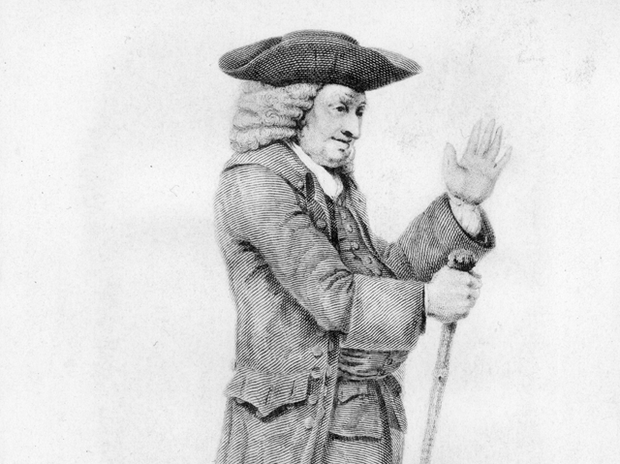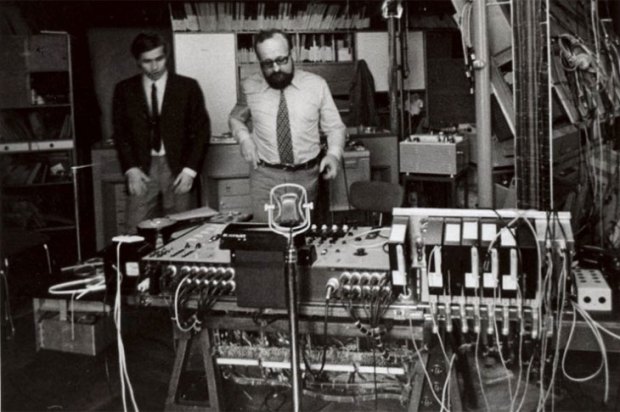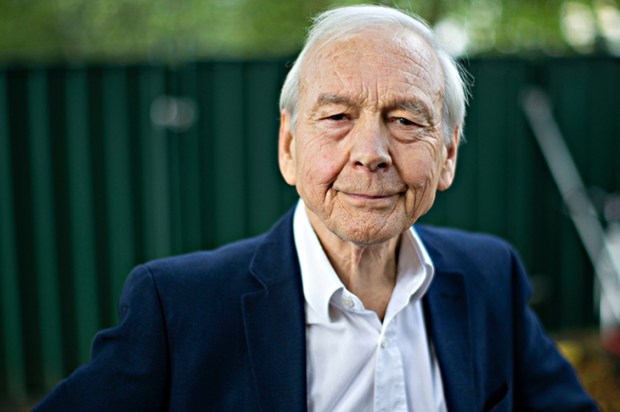Goodness knows what the Great Cham would have made of Radio 4 airing an adapted version of his philosophical fable, Rasselas, Prince of Abyssinia, on Sunday afternoon. Perhaps he would be surprised to see it done at all: the works of Dr Johnson are hardly fashionable these days and Rasselas is probably little known to most people, let alone read for pleasure. Which is a shame. We studied it for A-level (a dead giveaway as to my age) and although Johnson’s robust cynicism could have scarred a depressive teenager for life (‘Human life is everywhere a state in which much is to be endured, and little to be enjoyed’; ‘Such …is the state of life, that none are happy but by the anticipation of change: the change itself is nothing; when we have made it, the next wish is to change again’), his clear-sighted examination of the purpose of life has kept me going through many a dark tunnel.
Rasselas is born to life in the Happy Valley, a pampered prince wanting for nothing except a desire to see beyond the watchtowers and high mountains that keep him confined within the valley. One day, though, he escapes, intent on ‘seeing the miseries of the world, since the sight of them is necessary to happiness’, in the company of Imlac, a philosopher whose reasoned explanations will either infuriate because of their insistent pragmatism or give hope to the hopeless by virtue of their bracing realism. On their travels through Egypt and the Middle East, Rasselas and Imlac see the wonders of the world and meet various fellow-travellers on the road to enlightenment, only to discover in the end, as one must, that it does not matter so much what one does in life but how one does it.
Jonathan Holloway’s drama (directed by Amber Barnfather) valiantly translates all this into light entertainment, ‘a satirical fantasy’. Scenes in which Johnson struggles to convert his misanthropic musings into fiction (which were recorded in the house in Gough Square, London, where he created his great dictionary of the English language) are interspersed with updated versions of Rasselas’s travels, turning up for example at Tahrir Square in the middle of the Arab Spring, led by a guide called A.J. We flit between Johnson in London in 1759 and his characters in Cairo in 2011, between Handel and the muezzin — like the original fable itself, veering wildly between serious philosophising and tongue-in-cheek flights of fancy. I missed the coherence of Johnson’s text, written swiftly, some say in ten days to pay for his mother’s funeral. But as Johnson might have said, the attempt is an end in itself.
Much ado has been made of Fi Glover’s series Shared Experience, in which her guests talk about something they have in common. This week it returned with a programme (introduced by the producer Maggie Ayre) in which Sam, a mother who left her daughter, meets Daniel, whose mother, without warning one Sunday morning, walked out on him and his sisters. This should be my idea of wireless heaven, insights into other lives, one-to-one, nothing mediating between the listener and what is being said, but for reasons I cannot quite determine such radio outpourings seem to me soul-shrinking. It’s not that I doubt the validity of talking out one’s life experiences. Maybe it’s a question of purpose? Or scope? Daniel volunteered to go on air after hearing an earlier programme in which four mothers talked about leaving their children. He wanted his voice to be heard, the voice of the child who was left. He wanted also to give hope to others. He was very brave to go public. But still I felt depressed by the experience of hearing his story, and not heartened. Not even by listening in to his encounter with Sam, who had left her daughter but is now reconciled, the past not eradicated but healed. Their stories just seemed so sad.
My Head, in contrast, also on Radio 4 (produced by Toby Murcott) was both riveting and bracing. Four years ago James Piercy crashed his car into a tree. The programme begins, though, not with his memories of what happened but with the PC who was the first professional on the scene. ‘I can just remember seeing a hole in the side of your head,’ he tells James, ‘and being incredibly surprised by how white your skull was.’
He was so matter-of-fact, it was utterly startling. As was James’s response: ‘It’s not something most people will have seen.’
James wants to take us with him as he finds out what happened to his brain. In the first few milliseconds, the brain changes shape quite dramatically. The wires and connections inside get stretched. If the injury is really bad, they might snap. He talks to the air ambulance paramedic who rescued him, the surgeon who operated on him in the middle of the night, the therapists who worked with him afterwards. But he waits right until the end of the programme to give us a key fact about what happened that day that really takes the breath away.
Got something to add? Join the discussion and comment below.
Get 10 issues for just $10
Subscribe to The Spectator Australia today for the next 10 magazine issues, plus full online access, for just $10.
You might disagree with half of it, but you’ll enjoy reading all of it. Try your first month for free, then just $2 a week for the remainder of your first year.














Comments
Don't miss out
Join the conversation with other Spectator Australia readers. Subscribe to leave a comment.
SUBSCRIBEAlready a subscriber? Log in